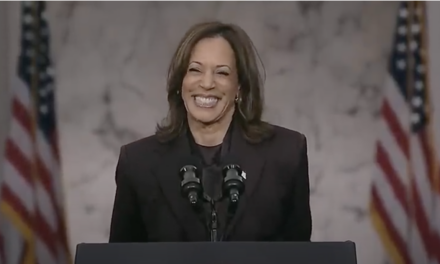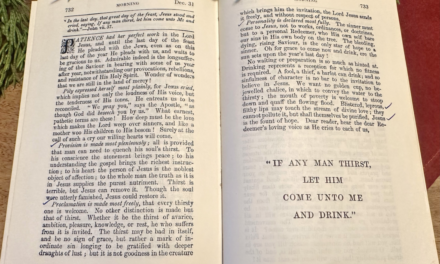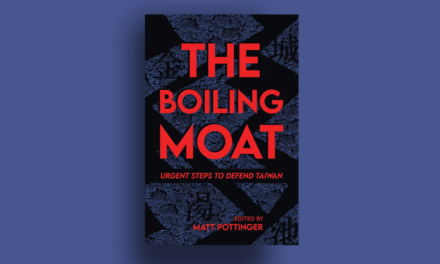We support our Publishers and Content Creators. You can view this story on their website by CLICKING HERE.
The Democrat judge presiding over the sham New York criminal case against Donald Trump remains adamant that the president-elect appear for sentencing on Friday — a mere ten days before Trump takes his oath of office.
On Monday, Trump’s legal team filed a two-fold motion seeking the stay of the January 10, 2025 sentencing hearing that Judge Juan Merchan ordered to proceed in an 18-page opinion he issued on Friday. In that opinion, Judge Merchan denied the president-elect’s Motion to Vacate the Jury Verdict and Motion to Dismiss the 38-count indictment a grand jury returned against Trump related to payments made to Stormy Daniels.
Trump’s motion argued first that the proceedings against him were automatically stayed during the pendency of his forthcoming appeal related to presidential immunity. Relying on the Supreme Court’s decision last term on presidential immunity, Trump’s legal team argued in Monday’s Motion to Stay that no further proceedings could take place until the issue of immunity was resolved by an appellate court.
Second, and alternatively, attorneys for the president-elect argued that even if a stay were not required under federal law, Judge Merchan should stay the proceedings under New York law.
Unsurprisingly, by day’s end on Monday, Judge Merchan had denied Trump’s request for a stay. The denial came in a perfunctory two-page order: After noting that D.A. Alvin Bragg had opposed the stay, Judge Merchan reasoned that a stay was inappropriate because Trump was merely repeating the arguments he had raised previously. The Manhattan trial judge then concluded that the precedent on which Trump relied to seek a stay was either distinguishable or inapplicable.
If by the time of publication Trump’s legal team has yet to seek a stay from the New York appellate court, it will surely do so soon. And in its request for a stay, Trump’s attorneys will highlight much of detail they included in the petition they filed Monday in the appellate court, seeking an order holding that D.A. Bragg and Judge Merchan’s “continued maintenance of criminal proceedings are unlawful, unconstitutional, and in excess of the Supreme Court’s jurisdiction.” (The “Supreme Court” referenced here is the name of Judge Merchan’s New York trial court.)
Under New York law, that petition, technically called an Article 78 petition, is the mechanism by which Trump can challenge Bragg’s authority to prosecute him and Judge Merchan’s authority to continue the criminal proceedings. The Article 78 proceedings allow a party to present challenges to the authority of a prosecutor or a court prior to the termination of the case, which here would only occur after Judge Merchan sentenced Trump.
In his Article 78 petition, Trump stressed that, in contravention of Supreme Court precedent on presidential immunity, D.A. Bragg presented evidence to the grand jury which indicted Trump related to official acts he took while the 45th president. Trump’s attorneys further highlighted in the petition the trial evidence the Manhattan prosecutor presented to the jury that concerned official actions Trump took while president. Because the Supreme Court’s holding in the presidential immunity case precludes the use of such evidence, Trump’s lawyers maintain that both the conviction and the indictment must be tossed.
Additionally, Trump’s legal team argues that the duties Trump is currently performing as president-elect qualify as presidential duties and that the D.A. and the trial judge accordingly lack any authority to interfere in his execution of those duties by forcing forward the sentencing hearing.
Any motion Trump presents to the appellate court for a stay will likely reiterate these same points. And it is likely they will resonate with the court of appeals, both legally and pragmatically.
Legally, the U.S. Supreme Court’s decision in the presidential immunity case strongly supports Trump’s argument that evidence related to his official actions should never have been presented to the grand jury, much less the jury. But, to the extent the New York appellate court is uncertain of how to apply the presidential immunity precedent in this case, the practicality of the situation is likely to prompt prudence — and prudence in this case would be to stay the lower court proceedings.
Margot Cleveland is an investigative journalist and legal analyst and serves as The Federalist’s senior legal correspondent. Margot’s work has been published at The Wall Street Journal, The American Spectator, the New Criterion, National Review Online, Townhall.com, the Daily Signal, USA Today, and the Detroit Free Press.
She is also a regular guest on nationally syndicated radio programs and on Fox News, Fox Business, and Newsmax. Cleveland is a lawyer and a graduate of the Notre Dame Law School, where she earned the Hoynes Prize—the law school’s highest honor. She later served for nearly 25 years as a permanent law clerk for a federal appellate judge on the Seventh Circuit Court of Appeals.
Cleveland is a former full-time university faculty member and now teaches as an adjunct from time to time. Cleveland is also of counsel for the New Civil Liberties Alliance.
Cleveland is on Twitter at @ProfMJCleveland where you can read more about her greatest accomplishments—her dear husband and dear son. The views expressed here are those of Cleveland in her private capacity.

 Conservative
Conservative  Search
Search Trending
Trending Current News
Current News 





